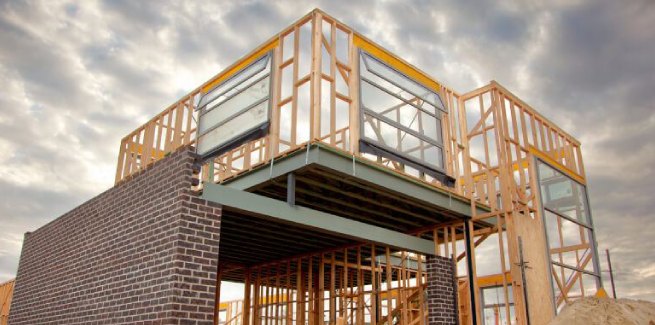The Australian Bureau of Statistics’ (ABS) Building Approvals data for December 2020 has revealed that approvals numbers for private houses rose by 15.8 per cent in December.
This is the largest number of approvals since the series began in 1983.
Indeed, housing approvals rose by 43.7 per cent in the December 2020 quarter when compared to the same time the previous year, while detached approvals finished 13.9 per cent higher for the 2020 calendar year (when compared to 2019).
Approvals for detached housing rose across the country, with Victoria (17.2 per cent), South Australia (33.6 per cent) and Western Australia (5.3 per cent) hitting record highs in seasonally adjusted terms.
Meanwhile, NSW (16.2 per cent) recorded its highest private house approval figure since March 2000, and Queensland (7.5 per cent) recorded its highest figure since September 1994.
Among the states, Western Australia (111.0 per cent) saw the largest increase in the number of detached dwelling approvals during the December 2020 quarter compared with the same time last year.
Detached approvals also increased in Tasmania (51.9 per cent), Queensland (51.2 per cent), NSW (30.9 per cent), South Australia (29.7 per cent) and Victoria (28.3 per cent).
Overall, the total number of dwellings approved in Australia rose by 10.9 per cent in December in seasonally adjusted terms.
The figures revealed that dwelling approvals rose in Tasmania (66.5 per cent), Queensland (24.0 per cent), South Australia (16.7 per cent), Victoria (8.6 per cent), Western Australia (7.8 per cent) and NSW (1.8 per cent).
The value of renovations and additions reached a record high of $941.6 million in December.
The value of total buildings approved rose 4.9 per cent in December in seasonally adjusted terms, with the value of total residential buildings approved rising by 2.3 per cent.
The value of new residential building rose 1.4 per cent, while the value of home renovations and additions rose 8.1 per cent.
Commenting on the figures, ABS director of construction statistics Daniel Rossi said: “Federal and state housing stimulus measures, along with record-low interest rates, have contributed to strong demand for detached dwellings.
“Despite the uncertainty experienced by developers and households during 2020, the total number of dwellings approved in the calendar year was 4.8 per cent higher than in 2019.”
Federal Assistant Treasurer Michael Sukkar attributed the record approval levels to the HomeBuilder package, and said that Treasury has estimated that the package will now support up to $18 billion of residential construction projects.
“HomeBuilder is helping build a stronger Australia in 2021 by delivering effective support and stimulus to protect the jobs of the 1 million Australians employed in the construction sector,” Mr Sukkar said.
“These results are a further measure of HomeBuilder’s success in helping Australians get into a home of their own and supporting tradies’ jobs, both key priorities of the Morrison government. Every additional building approval and every addition home sale means more work for our tradies and activity in our economy at a time it needs it most.
“The extension of HomeBuilder until 31 March 2021 also ensures there will be a steady pipeline of construction activity through to 2022 to lock in this momentum for the construction sector.”
Peak yet to come
Housing Industry Association (HIA) economist Angela Lillicrap said that the figures were “an exceptional result” in the wake of the COVID-19 crisis and its effects on the economy.
She noted that the increase in the number of building approvals had continued each month since the announcement of the federal government’s HomeBuilder package (in June 2020).
“Building approvals data lags behind other leading indicators, including new home sales and housing finance data, both of which set new records in December,” Ms Lillicrap said.
“With this in mind, it is likely that we have not yet seen the peak of detached home building approvals.
“This volume of work will ensure ongoing employment growth in the sector through 2021.”
Apartment market remains muted
In contrast with the strong figures for detached housing, ABS data has shown that while multi-unit approvals increased by 14.4 per cent in the December 2020 quarter compared with the previous quarter, they are 12.6 per cent lower than the same time last year – approvals finished 2020 8.6 per cent lower than in 2019.
“This relatively strong level of approvals for multi-units is not an indication of the volume of commencements to occur in 2021, as they likely began the planning and approval process prior to COVID,” Ms Lillicrap said.
“There is a divergence in the conditions facing detached builders versus apartment builders.
“Not only does the apartment market face headwinds from a lack of population growth and a preference for detached houses, yesterday’s regional migration data shows a shift away from metropolitan Sydney and Melbourne.
“The apartment market is also likely to be constrained until overseas migration returns,” she said.
In seasonally adjusted terms, the number of multi-unit approvals declined in Tasmania (81.8 percent), Victoria (47.2 per cent) and South Australia (44.4 per cent) during the December 2020 quarter compared with the same time last year.
However, they increased in Western Australia (73.8 per cent), NSW (15.3 per cent) and Queensland (5.7 per cent).
[Related: Loan commitment levels continue to soar]
 ;
;
